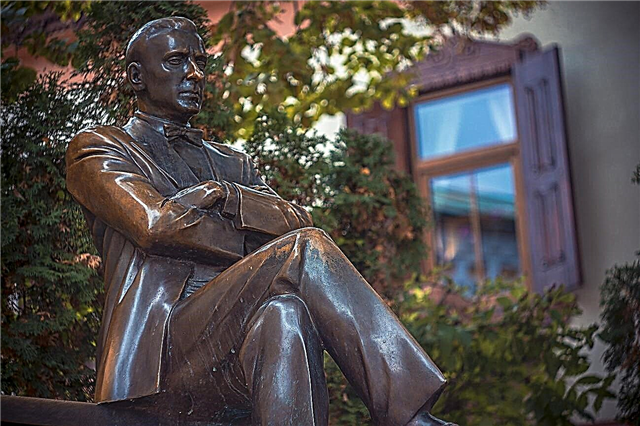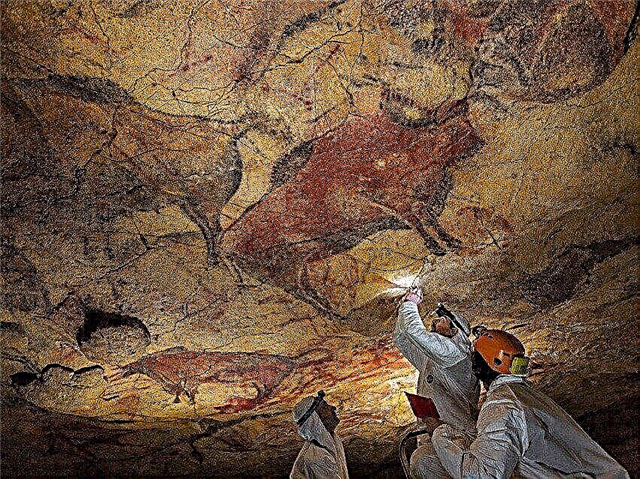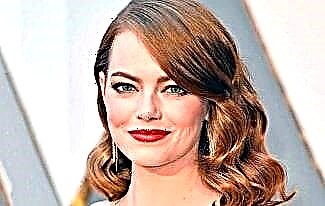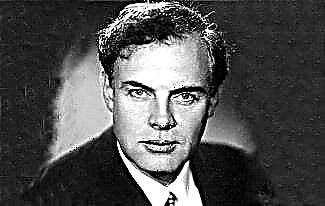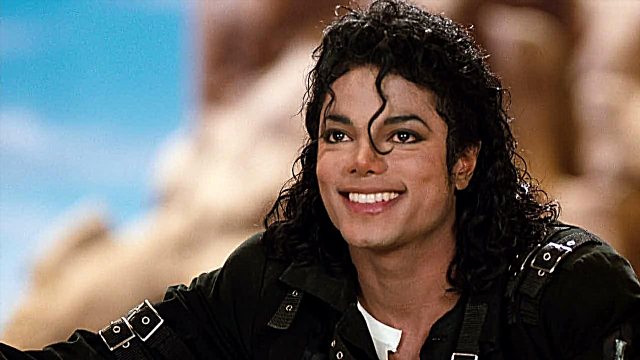"Pascal's Thoughts" Is a unique work of the outstanding French scientist and philosopher Blaise Pascal. The original title of the work was "Thoughts on Religion and Other Subjects," but later shortened to "Thoughts."
In this collection, we have collected a selection of Pascal's thoughts. It is reliably known that the great scientist did not manage to finish this book. However, even from his drafts, it was possible to create an integral system of religious and philosophical views that will be of interest not only to Christian thinkers, but to all people.
If we talk about the personality of Pascal himself, then his appeal to God happened in a truly mystical way. After that, he wrote the famous "Memorial", which he sewed into clothes and wore until his death. Read more about this in Blaise Pascal's biography.

Please note that Pascal's Thoughts presented on this page contain aphorisms and quotes from systematized and unsystematic Blaise Pascal's papers.
If you want to read the entire book "Thoughts", we recommend you opt for the translation of Yulia Ginzburg. According to the editorial board, this is the most successful, accurate and refined translation of Pascal from the French language.
So before you aphorisms, quotes and thoughts of Pascal.
Selected Thoughts of Pascal
What kind of chimera is this man? What a marvel, what a monster, what chaos, what a field of contradictions, what a miracle! The judge of all things, a senseless earth worm, the keeper of truth, a cesspool of doubts and mistakes, the glory and rubbish of the universe.
***
Greatness is not about going to extremes, but about touching two extremes at the same time and filling the gap between them.
***
Let us learn to think well - this is the basic principle of morality.
***
Let's weigh the gain and the loss by betting that God is. Take two cases: if you win, you win everything; if you lose, you will not lose anything. So don't hesitate to bet on what He is.
***
All our dignity is in the ability to think. Only thought lifts us up, not space and time, in which we are nothing. Let us try to think with dignity - this is the basis of morality.
***
The truth is so tender that, as soon as you step back from it, you fall into error; but this delusion is so subtle that one has only to deviate a little from it, and one finds himself in the truth.
***
When a person tries to take his virtues to the extreme, vices begin to surround him.
***
Pascal's stunning in its depth quote, where he expresses the idea of the nature of pride and vanity:
Vanity is so ingrained in the human heart that a soldier, an apprentice, a cook, a crock-pot - all boast and wish to have admirers; and even philosophers want it, and those who denounce vanity want praise for having written so well about it, and those who read them want praise for having read it; and I, who writes these words, perhaps wish the same, and, perhaps, those who will read me ...
***
Whoever enters the house of happiness through the door of pleasure usually leaves through the door of suffering.
***
The best thing about doing good is the desire to hide it.
***
One of the most popular Pascal quotes in defense of religion:
If there is no God, and I believe in Him, I do not lose anything. But if there is God, and I don't believe in Him, I lose everything.
***
People are divided into righteous people who consider themselves sinners and sinners who consider themselves righteous.
***
We are happy only when we feel that we are respected.
***
God has created a vacuum in everyone's heart that cannot be filled with created things. This is a bottomless abyss that can be filled only by an infinite and unchanging object, that is, God himself.
***
We never live in the present, we all just anticipate the future and rush it, as if it is late, or call on the past and try to return it, as if it was gone too early. We are so unreasonable that we wander in a time that does not belong to us, neglecting the one that is given to us.
***

***
Evil deeds are never done so easily and willingly as in the name of religious convictions.
***
How much fairer does a lawyer think a case for which he was generously paid.
***
Public opinion rules people.
***
Openly appearing to those who seek Him with all their hearts, and hiding from those who with all their hearts flee from Him, God regulates human knowledge about Himself. He gives signs visible to those who seek Him and invisible to those who are indifferent to Him. For those who want to see, He gives enough light. For those who do not want to see, He gives enough darkness.
***
Knowing God without realizing our weakness produces pride. The awareness of our weakness without the knowledge of Jesus Christ leads to despair. But the knowledge of Jesus Christ protects us both from pride and from despair, for in Him we gain both the consciousness of our weakness and the only way to heal it.
***
The final conclusion of the mind is the recognition that there are an infinite number of things that transcend it. He is weak if he does not come to admit it. Where it is necessary - one should doubt, where it is necessary - speak with confidence, where it is necessary - to admit one's powerlessness. Whoever does not do this does not understand the power of reason.
***
Justice without strength is one weakness, strength without justice is a tyrant. It is necessary, therefore, to reconcile justice with strength and for this to be achieved, so that what is just is strong, and what is strong is just.
***
There is enough light for those who want to see, and enough darkness for those who do not.
***
The universe is an infinite sphere, the center of which is everywhere, and the circle is nowhere.
***
The greatness of man is so great because he is aware of his insignificance.
***
We improve both the feeling and the mind, or, on the contrary, we corrupt, talking with people. Therefore, some conversations improve us, others corrupt us. This means that you should carefully choose the interlocutors.
***
In this quote, Pascal expresses the idea that it is not the external environment that determines our vision of the world, but the internal content:
It is in me, not in Montaigne's writings, that which I read in them.
***
Too great deeds are annoying: we want to repay them with interest.
***
Conceit and laziness are two sources of all vices.
***
People despise religion. They feel hatred and fear at the thought that it might be true. In order to cure this, one must start with the proof that religion is not at all contrary to reason. On the contrary, it is respectable and attractive. Deserves respect because he knows the person well. Attractive because it promises true good.
***

***
Some say: since you believed from childhood that the chest was empty, since you did not see anything in it, you believed in the possibility of emptiness. It is a deception of your senses, reinforced by habit, and it is necessary for the teaching to correct it. Others argue: since you were told at school that emptiness does not exist, your common sense, judging so correctly to this false information, turned out to be spoiled, and you need to correct it, returning to the original natural concepts. So who is the deceiver? Feelings or Knowledge?
***
Fairness is as much about fashion as beauty.
***
The Pope (Roman) hates and fears scientists who have not brought him a vow of obedience.
***
When I think about the short period of my life, absorbed by eternity before and after it, about the tiny space that I occupy, and even about that which I see in front of me, lost in the endless extent of spaces unknown to me and unaware of me, I feel fear and surprise. Why am I here and not there? There is no reason why I should be here rather than there, why now rather than then. Who put me here? By whose will and power is this place and this time assigned to me?
***
I spent a lot of time studying abstract sciences, and their remoteness from our life turned me away from them. When I began to study man, I saw that these abstract sciences are alien to man and that, plunging into them, I found myself farther from knowing my destiny than others who were ignorant of them. I forgave others for their ignorance, but I hoped at least to find partners in the study of man, in the real science he needed. I made a mistake. Even fewer people are involved in this science than geometry.
***
Ordinary people judge things rightly, because they are in a natural ignorance, as befits a man. Knowledge has two extremes, and these extremes converge: one is complete natural ignorance with which a person is born into the world; the other extreme is the point at which great minds, who have announced all the knowledge available to people, find that they know nothing, and return to the very ignorance from where they began their journey; but this is intelligent ignorance, conscious of itself. And those between these two extremes, who have lost their natural ignorance and have not found another, amuse themselves with crumbs of superficial knowledge and make themselves smart. It is they who confuse people and falsely judge everything.
***

***
Why does the lame not irritate us, but irritates the lame mind? Because the lame person admits that we are walking straight, and the lame mind thinks that we are the lame one. Otherwise, we would feel pity for him, not anger. Epictetus asks the question even more sharply: why are we not offended when we are told that we have a headache, but we are offended when they say that we are thinking badly or making a wrong decision.
***
It is dangerous to persuade a person too persistently that he is no different from animals, without simultaneously proving his greatness. It is dangerous to prove his greatness without remembering his baseness. It is even more dangerous to leave him in the dark of both, but it is very useful to show him both.
***
In this quote, Pascal expresses a very unusual view of familiar things:
Habit is second nature, and it destroys the first. But what is nature? And why does the habit not belong to nature? I am very much afraid that nature itself is nothing more than the first habit, as a habit is the second nature.
***
Time heals pain and strife because we change. We are no longer the same; neither the offender nor the offended are no longer the same people. It’s like a people who were insulted and then met again two generations later. They are still French, but not the same.
***
And yet, how strange it is that the mystery farthest from our understanding — the inheritance of sin — is the thing without which we cannot understand ourselves.
***
There are two equally enduring truths of faith. One is that a person in a primordial state or in a state of grace is exalted above all nature, as if he is likened to God and participates in divine nature. Another is that in a state of corruption and sin, man fell away from this state and became like animals. These two statements are equally true and immutable.
***
It is easier to endure death without thinking about it than the thought of death without any threat.
***
The greatness and insignificance of man is so obvious that the true religion must certainly teach us that there is in man some great basis for greatness, and a great basis for insignificance. She must also explain these striking contradictions to us.
***
What reasons are there to say that you cannot rise from the dead? What is more difficult - to be born or to be resurrected, so that something that never existed appears, or that something that already happened again becomes? Isn't it harder to start living than to return to life? One out of habit seems easy to us, the other, out of habit, seems impossible.
***

***
To make a choice, you must give yourself the trouble to seek the truth; for if you die without worshiping the real truth, you are lost. But, you say, if He wanted me to worship Him, He would give me the signs of His will. He did so, but you neglected them. Look for them, it's worth it.
***
People are of only three kinds: some have found God and serve Him, others have not found Him and are trying to find Him, and still others live without finding Him and not seeking. The former are intelligent and happy, the latter are unreasonable and unhappy. And those in the middle are intelligent but unhappy.
***
A prisoner in a dungeon does not know whether a sentence has been passed on him; he has only an hour to find out; but if he finds out that the sentence has been passed, this hour is enough to get it overturned. It would be unnatural if he used this hour not to find out whether the verdict had been passed, but to play picket.
***
You cannot judge the truth by objections. Many correct thoughts met with objections. Many false ones did not meet them. Objections do not prove the falsity of the thought, just as their absence does not prove its truth.
***
To bring piety to the point of superstition is to destroy it.
***
The highest manifestation of reason is to recognize that there are an infinite number of things that surpass it. Without such recognition, he is simply weak. If natural things are superior, what about supernatural things?
***
Knowing God without knowing your insignificance leads to pride. Knowing your insignificance without knowing God leads to despair. The knowledge of Jesus Christ mediates between them, for in it we find both God and our own insignificance.
***
Since it is impossible to achieve universality by knowing everything there is to know about everything, you need to know a little about everything; it is better to know something about everything than to know everything about something. This versatility is best. If both could be possessed, it would be even better; but as soon as one has to choose, one should choose one.
***
And in this deep, surprisingly well-marked and elegantly ironic quote, Pascal seems to be addressing himself with bewilderment:
When I see the blindness and insignificance of human beings, when I look at the dumb universe and at a man abandoned in the darkness at himself and as if lost in this corner of the universe, not knowing who put him here, why he came here, what will become of him after death , and unable to find out all this, - I am frightened, like the one who was brought asleep to a deserted, terrible island and who wakes up there in confusion and without the means to get out of there. And therefore it amazes me how people do not fall into despair from such an unfortunate lot. I see other people around with the same fate. I ask them if they know better than I do. They answer me no; and then these unfortunate madmen, looking around and noticing something amusing imagination, indulge in this object with their souls and become attached to it. As for me, I could not indulge in such things; and judging how much more likely there was something other than what I saw around me, I began to look to see if God had left any evidence of Himself.
***
This is perhaps one of the most popular quotes of Pascal, where he compares a person to a weak but thinking reed:
Man is just a reed, the weakest in nature, but it is a thinking reed. It is not necessary to take up arms against him by the whole universe to crush him; a cloud of steam, a drop of water is enough to kill him. But let the universe crush him, man will still be higher than his killer, for he knows that he is dying and knows the superiority of the universe over him. The universe knows none of this. So, all our dignity is in thought.
***
The suggestion that the apostles were deceivers is ridiculous. Let's continue it to the end, imagine how these twelve people gather after the death of I. Kh. And conspire to say that He is risen. They challenged all authorities with this. Human hearts are surprisingly prone to frivolity, to fickleness, to promises, to riches, so if even one of them confessed to a lie because of these baits, not to mention dungeons, torture and death, they would die. Think about it.
***
No one is as happy as a true Christian, nor so intelligent, nor so virtuous, nor so amiable.
***
It is a sin for people to become attached to me, even if they do it with joy and will. I would deceive those in whom I would have engendered such a desire, for I cannot be a goal for people, and I have nothing to give them. Shouldn't I die? And then the object of their affection will die with me.As much as I would be guilty, convincing me to believe a lie, even if I did it with meekness, and people would believe joyfully and thus delight me - so I am guilty, instilling love for myself. And if I attract people to me, I must warn those who are ready to accept a lie that they should not believe in it, no matter what benefits it may promise me; and in the same way, that they should not become attached to me, for they should spend their lives and labors in pleasing God or seeking Him.
***
There are vices that stick to us only through others and fly off like branches when the trunk is chopped off.
***
The custom must be followed because it is custom, and not at all because of its rationality. Meanwhile, the people observe the custom, firmly believing that it is just.
***

***
True eloquence laughs at eloquence. True morality laughs at morality. In other words, the morality of wisdom laughs at the morality of reason, which has no laws. For wisdom is something to which feeling relates in the same way that science relates to reason. The secular mind is part of wisdom, and the mathematical is part of reason. To laugh at philosophy is to really philosophize.
***
There are only two kinds of people: some are righteous who consider themselves sinners, others are sinners who consider themselves righteous.
***
There is a certain model of pleasantness and beauty, which consists in a certain relationship between our nature, weak or strong, as it is, and the thing that we like. Everything that is created according to this model is pleasant to us, be it a house, a song, a speech, poetry, prose, a woman, birds, rivers, trees, rooms, clothes, etc.
***
In the world, one cannot be considered a connoisseur of poetry, if one does not hang the sign "poet" on oneself. But all-round people do not need signs, they have no difference between the craft of a poet and a tailor.
***
If Jews were all converted by Jesus Christ, we would only have biased witnesses. And if they were exterminated, we would have no witnesses at all.
***
Well-mannered person. It's good when he is not called a mathematician, a preacher, or an orator, but a well-mannered person. I only like this general quality. When, at the sight of a person, they remember his book, this is a bad sign. I would like any quality to be noticed only if it is applied, fearing that this quality would not swallow a person and become his name; let it not be thought of him that he speaks well, until there is an opportunity for eloquence; but then let them think so of him.
***
Truth and justice are dots so small that, marking them with our rough tools, we almost always make a mistake, and if we hit a point, we smear it and at the same time touch everything that surrounds it - much more often a lie, than to the truth.
***

